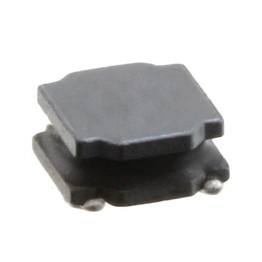Magnetic Components
Magnetic elements are fundamental components in various electronic and electromechanical systems, which utilize the principles of magnetism to perform a range of functions. Here's a concise introduction to magnetic elements:
Definition:
Magnetic elements are devices that interact with magnetic fields to either generate, control, or respond to them. They are made from ferromagnetic materials that can be magnetized, demagnetized, or re-magnetized as needed.
Functions:
1. Generation of Magnetic Fields: They can produce magnetic fields when an electric current passes through them, such as in electromagnets.
2. Control of Magnetic Fields: They can be used to direct or shape magnetic fields, as seen in magnetic shielding or focusing applications.
3. Detection of Magnetic Fields: They can sense the presence of magnetic fields, which is crucial in sensors and detectors.
4. Storage of Energy: They can store energy in the form of a magnetic field, as in inductors and transformers.
5. Transmission of Energy: They facilitate the transfer of energy through magnetic fields, which is the basis for wireless power transfer.
Applications:
1. Electronics: In transformers for voltage conversion, inductors for filtering and energy storage, and motors for motion control.
2. Automotive: In ignition systems, sensors, and electric vehicle components.
3. Data Storage: In hard disk drives where magnetic elements are used to read and write data.
4. Medical: In MRI machines for imaging and in magnetic delivery systems.
5. Industrial: In lifting magnets for heavy objects and in magnetic levitation systems.
Selection Criteria:
1. Material Properties: The type of ferromagnetic material determines the strength and characteristics of the magnetic field.
2. Size and Shape: These factors affect the magnetic field's distribution and the element's physical integration into a system.
3. Operating Conditions: Temperature, humidity, and environmental factors can influence the performance and reliability of magnetic elements.
4. Power Requirements: For elements like electromagnets, the power supply and current capacity are crucial.
5. Safety Standards: Compliance with industry standards for safety and performance is essential, especially in critical applications.
In summary, magnetic elements are versatile components that play a vital role in many technologies, from simple switches to complex systems like electric vehicles and data storage devices. Their selection and application depend on the specific requirements of the system they are intended for.
Please refer to the product rule book for details.
Definition:
Magnetic elements are devices that interact with magnetic fields to either generate, control, or respond to them. They are made from ferromagnetic materials that can be magnetized, demagnetized, or re-magnetized as needed.
Functions:
1. Generation of Magnetic Fields: They can produce magnetic fields when an electric current passes through them, such as in electromagnets.
2. Control of Magnetic Fields: They can be used to direct or shape magnetic fields, as seen in magnetic shielding or focusing applications.
3. Detection of Magnetic Fields: They can sense the presence of magnetic fields, which is crucial in sensors and detectors.
4. Storage of Energy: They can store energy in the form of a magnetic field, as in inductors and transformers.
5. Transmission of Energy: They facilitate the transfer of energy through magnetic fields, which is the basis for wireless power transfer.
Applications:
1. Electronics: In transformers for voltage conversion, inductors for filtering and energy storage, and motors for motion control.
2. Automotive: In ignition systems, sensors, and electric vehicle components.
3. Data Storage: In hard disk drives where magnetic elements are used to read and write data.
4. Medical: In MRI machines for imaging and in magnetic delivery systems.
5. Industrial: In lifting magnets for heavy objects and in magnetic levitation systems.
Selection Criteria:
1. Material Properties: The type of ferromagnetic material determines the strength and characteristics of the magnetic field.
2. Size and Shape: These factors affect the magnetic field's distribution and the element's physical integration into a system.
3. Operating Conditions: Temperature, humidity, and environmental factors can influence the performance and reliability of magnetic elements.
4. Power Requirements: For elements like electromagnets, the power supply and current capacity are crucial.
5. Safety Standards: Compliance with industry standards for safety and performance is essential, especially in critical applications.
In summary, magnetic elements are versatile components that play a vital role in many technologies, from simple switches to complex systems like electric vehicles and data storage devices. Their selection and application depend on the specific requirements of the system they are intended for.
Please refer to the product rule book for details.
Categories
Datasheets
TG110-E050N5RL Datasheet
HI0805Q310R-10 Datasheet
MPZ2012S221AT000 Datasheet
FCH0650-2R2M Datasheet
MH1608-121Y Datasheet
ASPI-4020S-4R7M-T Datasheet
BLM21PG221SN1D Datasheet
ILHB0603ER121V Datasheet
LA 25-NP Datasheet
28F0121-0SR-10 Datasheet
TCCH-80+ Datasheet
0908SQ-17NJLC Datasheet
PT61020EL Datasheet
0603LS-102XJRC Datasheet
BLM21BD751SN1D Datasheet
Article

Digital Signal Processors (DSPs) Explained: Transforming Data into Real-Time Solutions
Introduction: What is a Digital Signal Processor (DSP)? In the world of modern electronics, the need to process and manipulate digital signals quickly and efficiently is crucial. Whether it's audio, video, or sensor data, digital signal processors (DSPs) have emerged as the backbone for performing these complex tasks in real-time. But what exactly is a DSP? Figure 1: Digital Signal Processor A Digital Signal Processor (DSP) is...
Learn More >

The Difference Between Microprocessors and Application Processors
In the rapidly evolving world of technology, understanding the distinctions between microprocessors and application processors is crucial for anyone involved in electronics, software development, or product design. Both types of processors play vital roles in the functioning of electronic devices, yet they serve different purposes and are optimized for various applications. In this article, we’ll explore the key differen...
Learn More >

The Heart of Smart Devices: Exploring the Role of Application Processors and SOC
In today’s rapidly evolving technological landscape, application processors and system-on-chips (SOC) have emerged as the fundamental components powering a wide range of smart devices. These sophisticated chips enable the seamless operation of modern electronics, offering enhanced performance, power efficiency, and integration. This article explores the roles, features, types, and future directions of application process...
Learn More >








_1755246015479.jpg)























